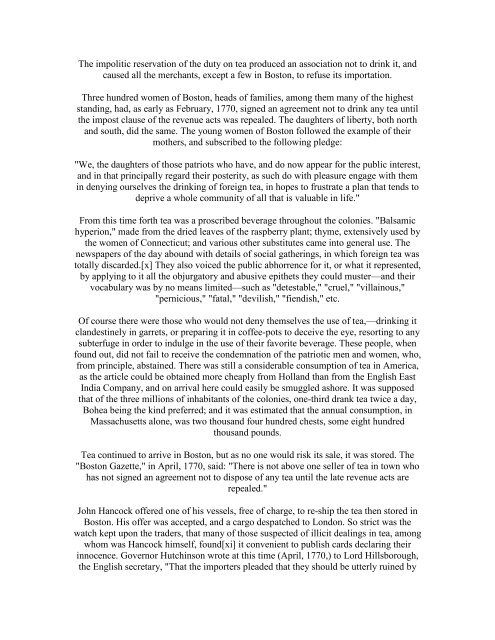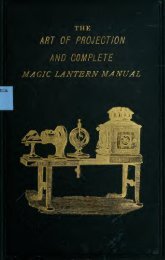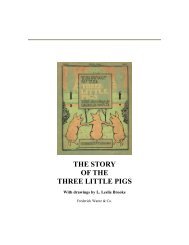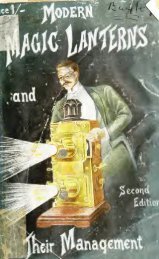TEA LEAVES: - Yesterday Image
TEA LEAVES: - Yesterday Image
TEA LEAVES: - Yesterday Image
You also want an ePaper? Increase the reach of your titles
YUMPU automatically turns print PDFs into web optimized ePapers that Google loves.
The impolitic reservation of the duty on tea produced an association not to drink it, and<br />
caused all the merchants, except a few in Boston, to refuse its importation.<br />
Three hundred women of Boston, heads of families, among them many of the highest<br />
standing, had, as early as February, 1770, signed an agreement not to drink any tea until<br />
the impost clause of the revenue acts was repealed. The daughters of liberty, both north<br />
and south, did the same. The young women of Boston followed the example of their<br />
mothers, and subscribed to the following pledge:<br />
"We, the daughters of those patriots who have, and do now appear for the public interest,<br />
and in that principally regard their posterity, as such do with pleasure engage with them<br />
in denying ourselves the drinking of foreign tea, in hopes to frustrate a plan that tends to<br />
deprive a whole community of all that is valuable in life."<br />
From this time forth tea was a proscribed beverage throughout the colonies. "Balsamic<br />
hyperion," made from the dried leaves of the raspberry plant; thyme, extensively used by<br />
the women of Connecticut; and various other substitutes came into general use. The<br />
newspapers of the day abound with details of social gatherings, in which foreign tea was<br />
totally discarded.[x] They also voiced the public abhorrence for it, or what it represented,<br />
by applying to it all the objurgatory and abusive epithets they could muster—and their<br />
vocabulary was by no means limited—such as "detestable," "cruel," "villainous,"<br />
"pernicious," "fatal," "devilish," "fiendish," etc.<br />
Of course there were those who would not deny themselves the use of tea,—drinking it<br />
clandestinely in garrets, or preparing it in coffee-pots to deceive the eye, resorting to any<br />
subterfuge in order to indulge in the use of their favorite beverage. These people, when<br />
found out, did not fail to receive the condemnation of the patriotic men and women, who,<br />
from principle, abstained. There was still a considerable consumption of tea in America,<br />
as the article could be obtained more cheaply from Holland than from the English East<br />
India Company, and on arrival here could easily be smuggled ashore. It was supposed<br />
that of the three millions of inhabitants of the colonies, one-third drank tea twice a day,<br />
Bohea being the kind preferred; and it was estimated that the annual consumption, in<br />
Massachusetts alone, was two thousand four hundred chests, some eight hundred<br />
thousand pounds.<br />
Tea continued to arrive in Boston, but as no one would risk its sale, it was stored. The<br />
"Boston Gazette," in April, 1770, said: "There is not above one seller of tea in town who<br />
has not signed an agreement not to dispose of any tea until the late revenue acts are<br />
repealed."<br />
John Hancock offered one of his vessels, free of charge, to re-ship the tea then stored in<br />
Boston. His offer was accepted, and a cargo despatched to London. So strict was the<br />
watch kept upon the traders, that many of those suspected of illicit dealings in tea, among<br />
whom was Hancock himself, found[xi] it convenient to publish cards declaring their<br />
innocence. Governor Hutchinson wrote at this time (April, 1770,) to Lord Hillsborough,<br />
the English secretary, "That the importers pleaded that they should be utterly ruined by





